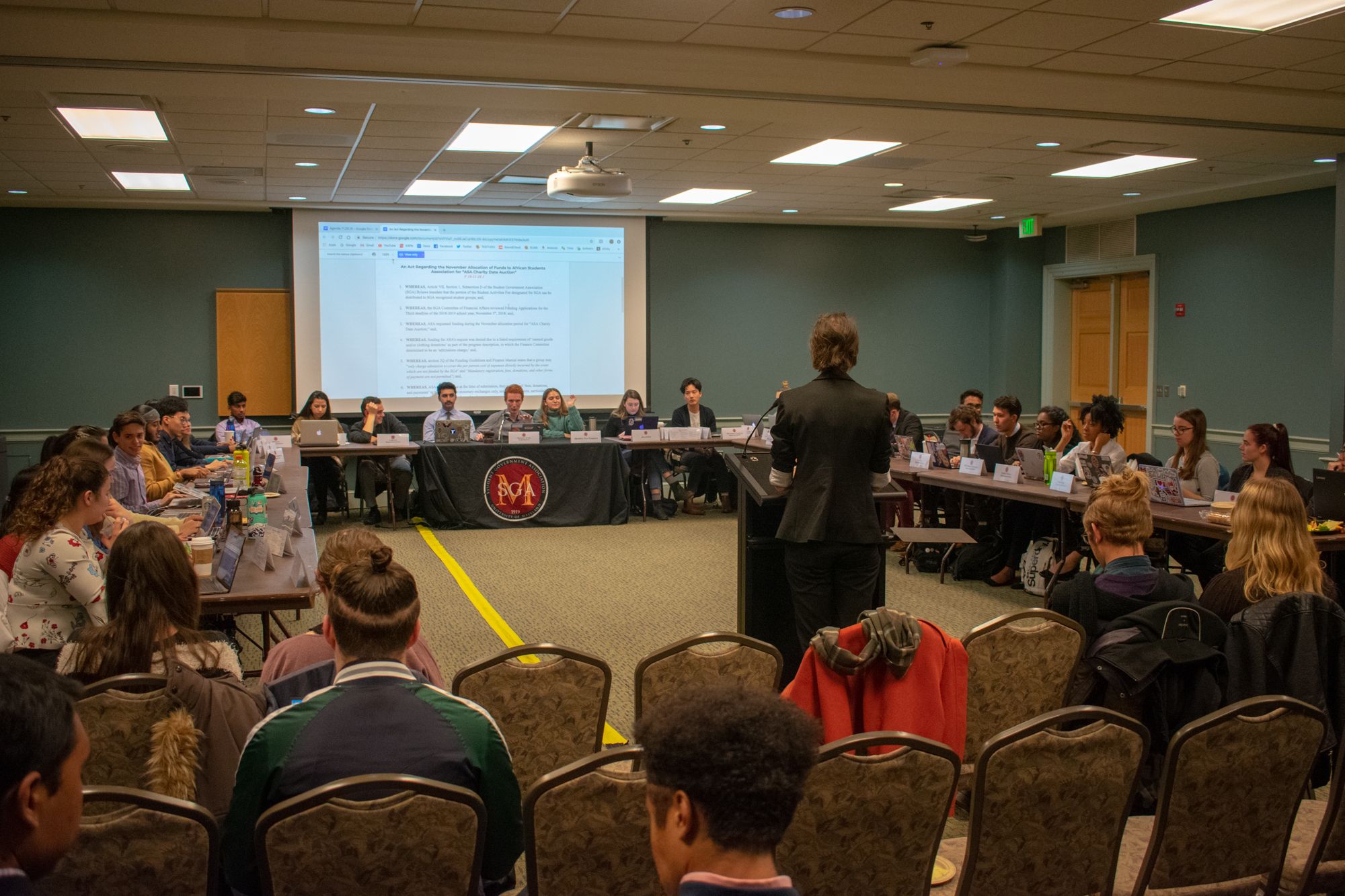The University of Maryland SGA voted Wednesday to pass a resolution urging the Board of Regents to expand in-state tuition rates to all veteran dependents and spouses.
Under the Veterans Access, Choice and Accountability Act of 2014, or “The Choice Act”, veteran dependents and their spouses nationwide are eligible to receive in-state tuition at their chosen university, as long as they remain a full-time student for four years. However, a provision of the bill requires that they must enroll at a higher education institution within three years of the veteran’s military discharge date.
For many prospective college students, this is an unrealistic goal.
“My dad retired [from the military] when I was 13,” freshman government and politics and public health science major Lily-Max Cooke said. “I would have had to go to college by age 16 to get these benefits.”
[Read more: UMD is enrolling more out-of-state students — and hiking their tuition]
After researching various state policies, Cooke found that 20 states have passed legislation in response to the federal bill, allowing them to expand in-state tuition eligibility for all public schools in the state by removing the three-year time limit.
She said that the proposed legislation would allow this university to become more competitive and appealing to military families.
“Maryland is behind the curve of these 20 other states,” Cooke said. “The Big Ten schools have this competitive edge that we’re missing out on. Had I known about this beforehand, it might have impacted my college decision.”
Ajay Mahesh, the Student Government Association’s public health representative, sponsored the bill, which passed 31-0-1 in Wednesday’s vote. He said it is “unreasonable to expect” children of veterans to quickly go into college once a veteran parent ends their service.
“[Cooke’s] idea is very simple,” the senior community health major said. “We expand those benefits and eliminate the three-year requirement. In that, this will help dependents here at the University of Maryland to stay here as long as possible, be able to be more financially secure, and to attract more dependents from out of state to come to the university.”
[Read more: UMD SGA backs Maryland bill to give student-athletes collective bargaining rights]
SGA President Jonathan Allen is optimistic about the possibility of a changing policy.
“We should be supporting veterans and their dependents that have sacrificed so much for our country, and I believe addressing this gap in the policy will help many families,” he said. “I think the biggest hurdle to adjusting the policy will be the fiscal impact that it has.”
Because of her father’s continued military service following 9/11, Cooke is eligible for education benefits as a part of the Post-9/11 GI Bill. The law gives four years’ worth of education benefits to any military member that served for “at least 90 days of aggregate active duty service after Sept. 10, 2001,” according to the U.S. Department of Veterans Affairs.
The amount of money given for tuition as part of the benefits varies from school to school and depends on the cost that an in-state student would pay, Cooke said.
“My dad went to college before he enlisted in the military, so all those benefits that he didn’t use, he was able to give to my sister and I,” Cooke said. “Because my dad had two kids, it’s two years for my sister, two years for me. Once those years run out, I’ll no longer be getting financial assistance from the Veterans Affairs.”
Current policy states that dependents must be receiving Post 9/11 GI Bill benefits in order to be eligible for in-state tuition. When the benefits run out, out-of-state students, like Cooke, are required to pay out-of-state tuition rates.
After reaching out to universities and legislatures across the country that have removed the three-year time frame — such as Connecticut, Maine, Ohio and Pennsylvania — Cooke approached the SGA.
“There’s so many different avenues for how different things can get passed, so it’s more for the awareness factor,” she said. “Having SGA take a formal stance really shows the student body is behind the whole initiative.”
With the SGA’s support, she thinks the issue can be pushed to the Board of Regents, encouraging them to expand the in-state tuition benefits to all military dependents and spouses and remove the three-year time limit.
“I really think it’s a policy no one’s looked at,” she said. “I think this is good time to start getting back in the pace of things. Now that we’re in the Big Ten, this is a whole new competitive atmosphere.”
CORRECTION: A previous version of this story’s excerpt incorrectly stated the resolution passed 30-0-1. This story has been updated.



